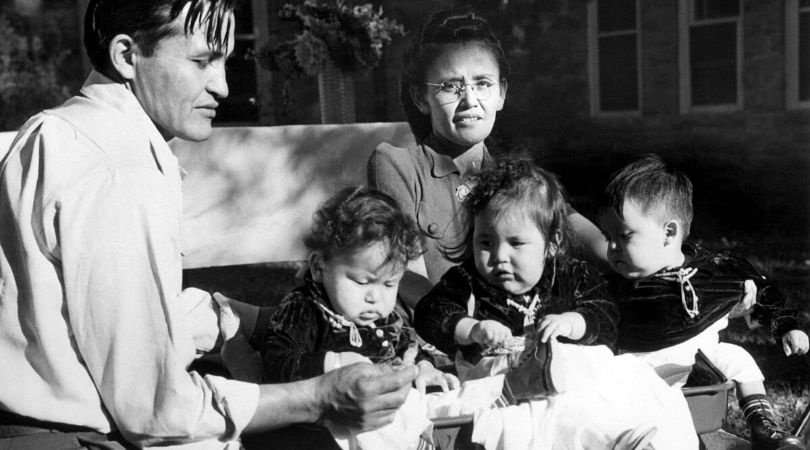In honor of a new year, where resolutions and traditions are everywhere, it seems fitting to take a look at traditions that are out of our cultural scope but also celebrate the importance of beginnings. One in particular comes from the Dine, Navajo culture, and focuses on a baby’s first laugh.
Videos by Rare
A Milestone
As we all know, milestones are a big deal. They give importance to what would otherwise be days stretching on and on without many purposes. This Navajo tradition celebrates the milestone of the first time that a baby laughs to mark the true start of the baby’s life here on earth.
A traditional Navajo belief is that the first laugh is a unique moment. Joy is something that is learned and vital to the human experience. In addition, the baby is living in two worlds. A “spirit world” where their soul came from and the physical world they were born into. For the first few months, babies are treated with much fragility and care by family members. When the baby laughs, it’s a sign that they are leaving the “between worlds” stage of life and transitioning into the physical world.
A’wee Chi’deedloh
https://www.youtube.com/watch?v=P0TbI-slRM4
This joyous sound lets the families of the Navajo baby know that the new baby has chosen to become a new member of the community and leave behind the spirit world. This could also be looked at from a psychological lens. At birth, we have no scope of the world and have no sense of direction or understanding. For a long time, babies don’t even recognize faces or understand that if you put your face behind your hands that your face didn’t cease to exist. In the same way, laughter is seen as a moment where the baby has its first true interaction that represents comprehension as a human being.
Whoever is the first person to make the baby laugh is then responsible for the First Laugh Ceremony. This ceremony is called the A’wee Chi’deedloh. This is a party that the new baby is technically “hosting” with the help of the adult that made them laugh. At the A’wee Chi’deedloh (the baby laughed) party, rock salt is given out to the guests. This part of the tradition dates back to when salt was a commodity that was hard to come by. It represents giving in hopes that the baby remains generous with their joy and happiness and share it with others in their lifetime.
The Dine people are not the only ones to host these early life celebrations. Another celebration that is similar is the Dol tradition in Korea. That celebration marks a new baby’s first one hundred days. This is around the same time that Navajo families are looking for a new baby’s first laugh. Milestones like these can serve as a reminder that there is always something to celebrate and that every day and moment can be greatly meaningful if we choose to see them that way.



